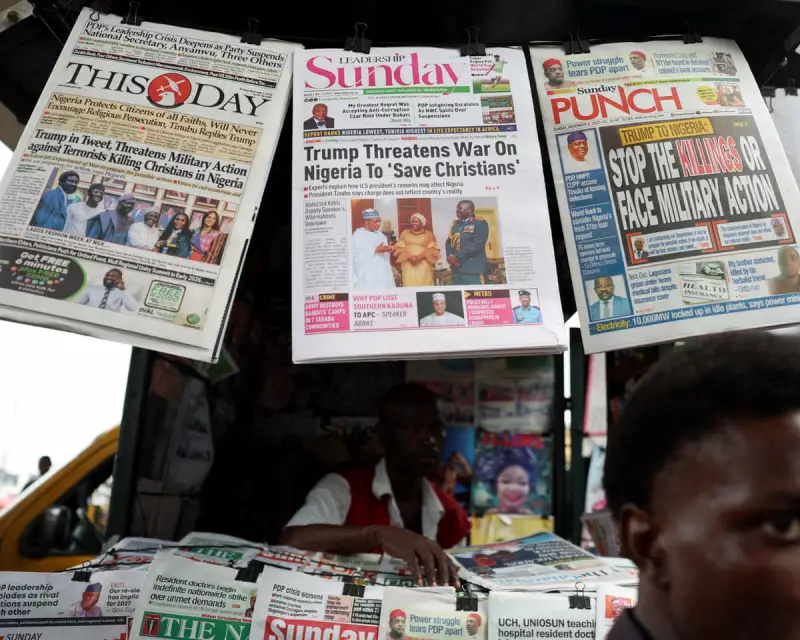
The political world was sent reeling this week as former US President Donald Trump issued a startling threat of military action against Nigeria, raising alarm bells across diplomatic circles and prompting urgent questions about the motivations behind such a dramatic escalation.
What Exactly Did Trump Propose?
In comments that have reverberated through international capitals, Trump suggested he would consider deploying American military forces to Nigeria if he returns to the White House. The controversial statement represents one of his most explicit threats of intervention in African affairs and signals a potential radical shift in US foreign policy approach.
The Political Context Behind the Threat
Trump's declaration didn't emerge in a vacuum. The former president framed his threat around allegations of "corruption" and "chaos" within Nigeria's government, though he provided scant specifics to support these claims. His comments appear timed to capitalise on existing tensions within Nigeria's complex political landscape.
Nigeria's Current Challenges
Africa's most populous nation faces multiple security crises, including:
- Ongoing conflicts with Islamist insurgents in the northeast
- Widespread banditry and kidnapping in northwestern regions
- Separatist agitation in the southeast
- Deepening economic troubles affecting millions of citizens
International Reaction and Diplomatic Fallout
The response from global leaders has been swift and largely critical. Diplomats from multiple nations have expressed concern about the implications of such rhetoric, particularly given Nigeria's position as a key regional power and strategic partner in counter-terrorism efforts.
African Union officials have privately expressed alarm at the prospect of external military intervention, while European allies have questioned the wisdom of threatening a sovereign nation that hasn't requested such assistance.
Legal and Constitutional Questions
Legal experts are raising serious questions about whether a US president would have the authority to unilaterally authorise military action in Nigeria without congressional approval, particularly absent a clear threat to American national security or a formal request from the Nigerian government.
Historical Precedents
Previous US military engagements in Africa have typically involved:
- Counter-terrorism operations with host nation consent
- Limited special forces deployments
- Multilateral missions under UN or African Union mandates
Potential Consequences for Regional Stability
Security analysts warn that even the suggestion of Western military intervention could have destabilising effects across West Africa. The region already grapples with multiple security challenges, and Trump's comments risk complicating delicate diplomatic relationships that have taken years to build.
The timing is particularly sensitive, coming as Nigeria's President Bola Tinubu attempts to implement economic reforms and address the country's security woes through regional cooperation rather than external intervention.
Looking Ahead: What Comes Next?
As the international community digests Trump's provocative statement, attention turns to how this might affect US-Nigeria relations and whether it represents a broader shift in Republican foreign policy thinking. The Nigerian government faces the delicate task of responding firmly to protect its sovereignty while maintaining important international partnerships.
One thing is certain: in an increasingly multipolar world, threats of military intervention against major African nations mark a significant escalation in rhetoric that could have lasting consequences for global diplomacy and regional security architectures.





